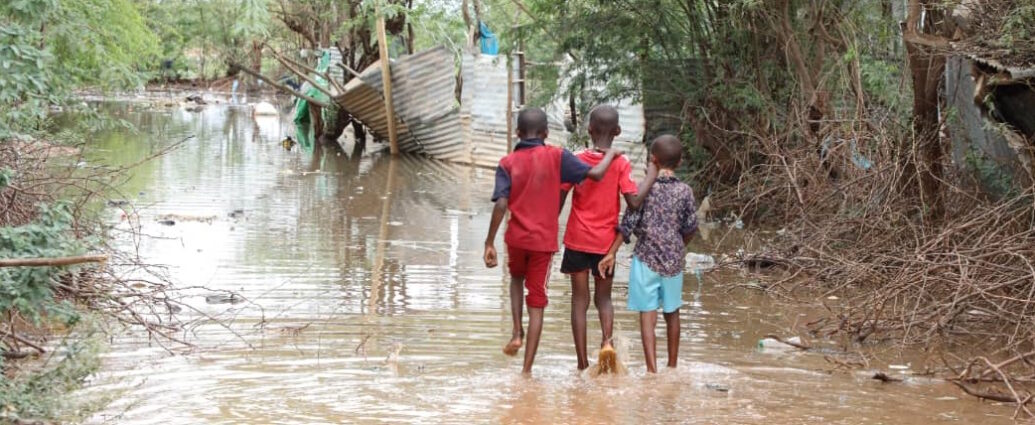© WHO / Abdirahman Mohamed
This research–into–action brief explores how the climate crisis is reshaping the lives of an estimated 500 million children and young people growing up in slums and informal settlements.
Read more
This working paper provides an overview of the risks and potential of early childhood and the changing climate and showcases a dozen innovative approaches where early childhood and climate sectors have successfully converged.
Read more
This collaborative venture is a multi-stakeholder initiative that provides a shared vision, identity and platform to amplify the work of its partners to protect children’s environmental health. Partners are united around a common vision – that all children deserve to grow up in a clean, healthy and sustainable environment.
Read more
This article provides an overview of the threats climate change represents for women, children and adolescents, including the most vulnerable communities, and where health and climate investments should focus. It draws on evidence to explore the opportunities and challenges for health financing, climate finance and co-financing schemes to enhance equity and protect WCAH while supporting climate goals.
Read more
This 4 page brief outlines specific recommendations for PMNCH constituencies to address climate change as part of interventions for women’s, children’s and adolescents’ health (WCAH) and accelerate climate policies, financing and programmes that integrate the needs of women, children and adolescents.
Read more
This UNICEF/WHO interactive course is based on the WHO training package on children's environmental health - a comprehensive set of harmonized, peer-reviewed materials on the most relevant issues on children's environmental health. The course will increase the capacity of health workers to recognize, prevent, diagnose and manage children’s conditions related to environmental threats.
Read more
While the evidence on the impact of climate change on children’s health and well-being is growing, research often focuses on the effects of individual hazards. This report aims to provide a comprehensive ‘stocktake’ of the impacts of climate change on children across six major hazards that impact their health and well-being: extreme heat, droughts, wildfires, floods and storms, air pollution and ecosystem change.
Read more
This issue of the Journal of Global Health includes three articles summarising the available reviews on the impact of climate change on maternal and newborn health, child and adolescent health, and older people, which together take a life course approach to optimal development and healthy ageing.
Read more
This advocacy brief makes the case that investing in early childhood development is a climate-change friendly investment. It presents the problem, the case for making investment, suggested actions, and efforts underway.
Read more
ARNEC is pleased to share the evidence from the Asia-Pacific region and the insights from experts and partners around the world exploring the deep interlinkages between climate change, environmental degradation and ECD to support the goal of enabling ECD systems and services for young children become more climate resilient, adequately funded, and their value better understood and considered by policy makers and climate scientists.
Read more
ARNEC has made available the summary of the scoping study "From Most Vulnerable to Most Valuable: A scoping study putting young children at the heart of environmental and climate actions". This one page document captures the impact of climate change and environmental degradation on the five components of nurturing care.
Read more
This landmark report on child health and well-being is the first comprehensive, independent report looking at child health through the lens of changing climate and other existential threats, such as ecological degradation, migrating populations, conflict, pervasive inequalities, and predatory commercial practices
Read more
This Thematic Brief makes the case that ensuring children affected by HIV survive and thrive requires applying a nurturing care lens to routine maternal, newborn and child health services, as well as, HIV prevention and care services.
Read more





